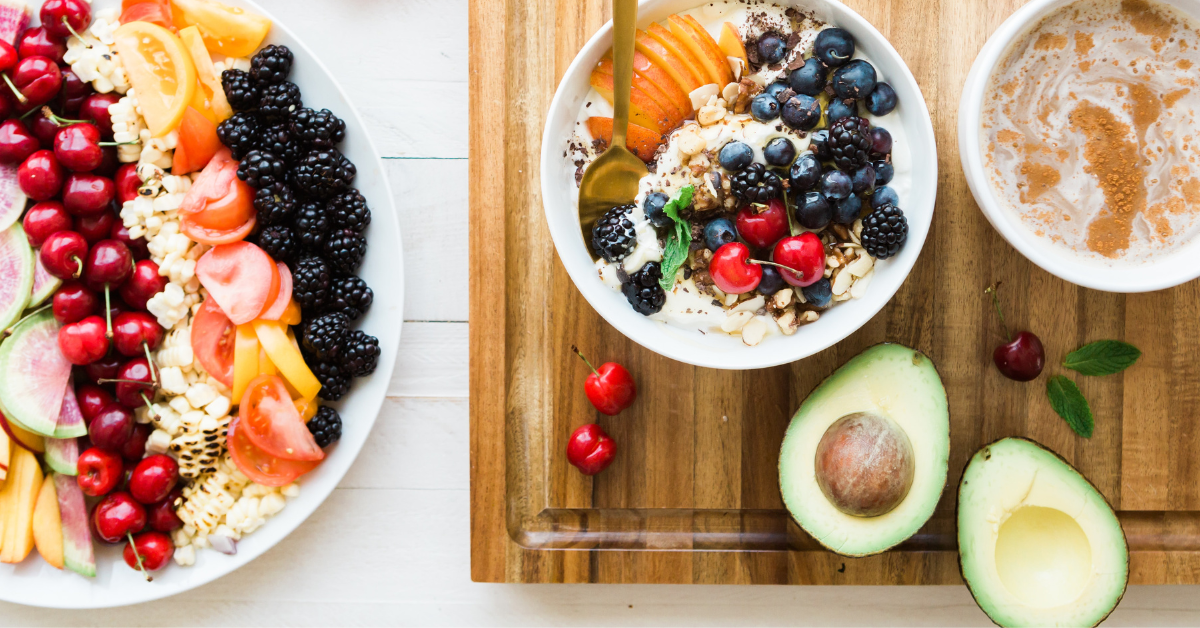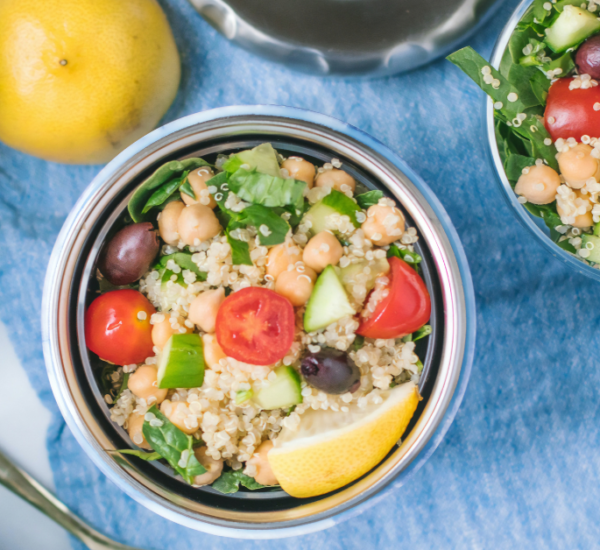In the time it takes to say “grab me a straw” it seems another juice, shake or soup-based diet plan has been released in the market. But replacing meals with liquids is not only unsustainable but potentially dangerous says 12WBT dietitian Georgie Moore.
In the last few years, liquid-based diet plans have emerged as a popular way to expedite weight loss. They encourage dieters to replace regular meals with a liquid alternative in order to shed weight fast. The mass appeal of these weight loss programs is undeniable given the sheer number of celebrity endorsements and television infomercials. But is a bang-for-your-buck approach to nutrition really sustainable? And, for that matter, is it safe?
Nutritionally, the answer is a resounding no. Replacing a balanced, portion-controlled meal with a liquid lunch won’t supply your body with the nutrients it needs. Often, these meal replacements are high in sugar and artificial flavourings while also lacking natural fibre and vitamins, and they may actually cause you to lose muscle – in addition to fat – if they’re low in protein.
The experts are equally unconvinced. 12WBT dietitian Georgie Moore says that if used according to directions, sustained meal replacement may cause the body to “go into ketosis [a dangerous state caused by eating too few carbohydrates that can lead to organ failure] and the user may experience a host of horrendous side effects – nausea, headaches, dizziness, mood swings and gastrointestinal issues.”
And while this may lead to instant results in terms of weight loss, Georgie suggests that the danger lies in lack of education as it’s a bandaid solution to a much more systemic issue. “The user won’t learn anything about eating well, and [ultimately] will still have to consult a dietitian,” she says.
Ironically, the origins of the liquid diet are medicinal. Under the supervision of a doctor, patients undergoing major surgery will traditionally participate in a liquid cleanse one to two days before their operation to clear out any intestinal residue. Side effects of this cleanse often include some weight loss.
And in this capacity, Georgie says that liquid diets still have a purpose. “I would recommend it if I have a client who is morbidly obese and they need to lose weight very quickly for health reasons, like an upcoming surgery,” she says.
But this isn’t to say that meal replacements should be avoided at all costs all the time. “Often people use meal replacements in place of just one meal on occasion,” Georgie says. “This is fine if they’re running late and there’s absolutely no better option. However, it’s not [an attractive option] as an everyday, regular meal choice.”
Part of the reason for this is that liquid meal replacements are known to slow the user’s metabolism, resulting in sluggishness and fatigue. This, in turn, makes it more difficult to exercise and to keep the weight off. Ultimately, the short-term payoff is unsustainable in the long run.
Georgie believes that the best course of action remains portion control, regular exercise and a healthy diet. “You’ll be able to control your health and wellbeing much more than any food replacement will enable you to do,” she says.
The bottom line is that you can’t drink your way to sustained weight loss and if you’re thinking about taking on a liquid diet it’s wise to consult a dietitian first.
It takes consistency and a sustained approach to improve your health and fitness, join the 12 Week Body Transformation and get the tools to change your lifestyle for life and not just a few weeks!
















In September 2013 I spent a month as a volunteer working in a Spanish health retreat that promoted juicing as a way of life. I participated by having only juice for breakfast and lunches, with a vegetarian meal in the evenings. Yes I lost weight – about 5 kgs, and returned home inspired to continue having juice as a meal replacement more often. Subsequently over the following 18 months I only ate red meat a couple of times per month, thinking I had plenty of iron etc from drinking avacado smoothies, having kale in many juices and continuing what I had learnt at the health retreat. However, I regained the weight soon after and then some extra kgs as well, plus my energy levels dwindled. I started having some blood tests every 6 months and was eventually diagnosed with anaemia when my doctor noticed that my iron levels in each blood test continued to drop significantly until I only had a score of 5 – which is almost none!
My experience taught me that liquid diets are not only unsustainable, but that we also need balance with what we consume and not to obsess over any one area of nutrition at the exclusion of other nutrients.
By the time I have reached 50 and also been through menopause, I have tried just about diet and fad that has been and gone on the market! For the first time I am having realistic success with the 12WBT and can’t sing enough praises for what Michelle has put together!
Why does this site say that meal replacements are not the way to go when MB has a branded meal replacement?
Hi Alexandra – Michelle has a range of protein shakes which are for muscle replenishment after strength training. They are not designed to replace a meal.
All the best,
Leila
12WBT Support Crew
I have to tell my testimonial today. It is a myth that liquid diet are dangerous, maybe they are but not to all people. Last year 8/1/14 to 9/1/14 I impulsively went on a liquid diet out of the clear blue. No hair loss, no fatigue, no mood swings, no dizziness, no headaches. I felt great. I was hyper and had to make myself go to sleep and woke up happy and with lots of energy. I lost 20 lbs. and yes I put it back on, only because I love junk food. It’s been over a year, and I’m trying this again but for 45 days. Today is day 6. Feeling great and doing my everyday usual. I don’t work out, but I’ve been healthy all my life, that could be apart of why this diet don’t effect me. Guess I’m just one of the lucky ones. Peggy
What are your views on liquid diets in relation to lose of appetite? Thanks
Sha
Hi Sha,
At 12WBT we do not recommend ‘liquid diets’ as it’s critically important for the digestive system to get a workout from breaking down food and allowing fibre to do its job! Only a small population of people actually require a liquid approach for specific medical reasons. A loss of appetite whilst on a liquid only diet have to do with the volume of liquid being consumed. It’s best to speak to a medical professional if you are struggling with your appetite.
Cheers,
Tanya
12WBT Support Crew
I find it ironic that this article was posted on Michelle Bridges Newsletter when The Biggest Loser have a range of shakes????!!!!!
Hi Lana,
Thanks for your feedback.
Michelle Bridges 12 Week Body Transformation is a different program to that of The Biggest Loser.
12WBT is a lifestyle program, providing sustainable tools and lessons for members. We provide 1200 calorie Nutrition Plans based are nutritionally balanced, based around whole foods and designed for achievable weight loss.
If you have any more questions, let us know.
Thanks
Madeleine
12WBT